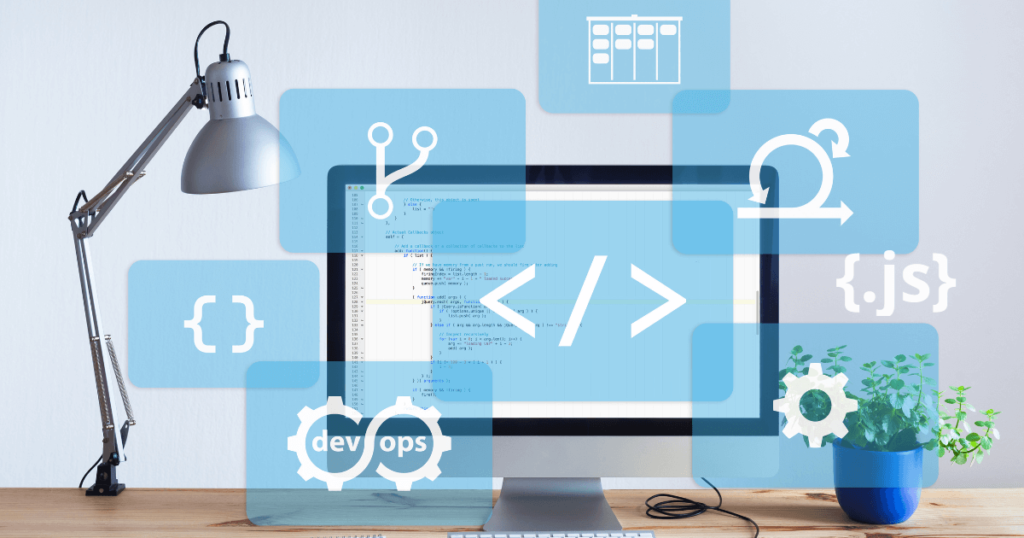Why Is Python So Popular In The World

Simplicity & Ease of Use:
- Beginner-friendly syntax: Python has a simple syntax that makes it easy to learn and use, even for beginners. Python’s code resembles natural language, making it easier to read and understand than languages with complex punctuation or symbols. This allows learners to focus on concepts rather than getting bogged down in syntax.
- Interpreted language: Python code is executed line by line, forgiving mistakes and enabling rapid experimentation without compilation steps.
Versatility:
- General-purpose: Python can tackle various tasks, from web and software development to data science, automation, and machine learning. This flexibility makes it a valuable tool across diverse fields.
- Rich ecosystem: Python boasts a vast collection of libraries and frameworks readily available for various applications. This saves developers time and effort by leveraging existing solutions.

Community and Support:
-
Python has a large and active community that has developed a wide range of libraries and frameworks for extending the language’s functionality.
- Active and welcoming community: Python’s large and supportive community of developers are willing to help with questions and contribute to open-source projects. This creates a collaborative and inclusive environment.
- Extensive learning resources: Countless tutorials, documentation, and online courses cater to all learning styles and skill levels, making it easy to find the support you need.
Portability/Cross-Platform Compatibility:

Relatively fast development:
Python’s simplicity often leads to quicker development cycles compared to some other languages.
While Python has its strengths, it’s essential to consider its limitations too. For instance, it might not be the best choice for performance-critical applications where speed is paramount.
Overall, Python’s combination of Simplicity, ease of use, versatility, strong community, and vast ecosystem make it a compelling choice for a wide range of programming needs. This explains its enduring popularity and continued growth in the programming landscape.

-
Web development:Python is a popular language for web development because it is easy to learn and use, and it has a large number of libraries and frameworks for web development.
-
Data science:Python is a popular language for data science because it has a number of libraries and frameworks for data analysis and visualization.
-
Machine learning:Python is a popular language for machine learning because it has a number of libraries and frameworks for machine learning algorithms.
-
Automation:Python is a popular language for automation because it is easy to use and it has a number of libraries for automating tasks.
Why Is Python So Popular In Machine Learning?

Python brings an exceptional amount of power and versatility to machine learning environments. The language’s simple syntax simplifies data validation and streamlines the scraping, processing, refining, cleaning, arranging and analyzing processes, thereby making collaboration with other programmers less of an obstacle.
- Readability: Python’s syntax is clean, concise, and easy to understand. This makes it accessible for both beginners and experienced developers.
- Libraries and frameworks: Python has a large ecosystem of libraries and frameworks, including NumPy, Pandas, Matplotlib, and Seaborn. These libraries simplify the implementation of complex machine learning models.
- Community support: Python has a large and active community.
- Compatibility: Python is compatible with other languages.
- Versatility: Python can be used for scripting, running servers, and data analysis.
- Ease of use: Python is easy to learn and use in practice.
- Scalability: Python’s readability makes it easy to maintain scalable AI projects
Why Is Python So Popular – Python popularity graph:

Worldwide, Python is the most popular language, Python grew the most in the last 5 years (2.6%) and Java lost the most (-5.3%)
- Steady Rise: Google Trends data shows Python’s popularity consistently increasing, reflecting its widespread adoption and growing demand.
- Top Spot Contender: It frequently ranks among the top programming languages in various surveys and popularity indices, highlighting its industry relevance.
- Diverse Applications: Python’s versatility fuels its popularity across web development, data science, automation, and more, expanding its reach and impact.
Why is Python Important?
- Problem-Solving Prowess: Python tackles complex tasks efficiently, making it a valuable tool for real-world challenges.
- Learning Efficiency: Beginner-friendly nature and abundant resources make it an excellent choice for acquiring valuable programming skills quickly.
- Community Support: The active and helpful Python community provides assistance and encouragement, fostering a supportive learning environment.
Why is Python better than other languages?

Python is a general-purpose programming language that is used for a wide variety of applications, including web development, data science, machine learning, and artificial intelligence. It is known for its simple syntax, readability, and versatility.
Here are some of the reasons why Python is better than other languages:
-
It is easy to learn and use.Python has a simple syntax that is easy to read and understand, even for beginners. This makes it a great choice for people who are new to programming.
-
It is versatile.Python can be used for a wide variety of tasks, from web development to data science to machine learning. This makes it a valuable tool for programmers of all skill levels.
-
It has a large community and ecosystem.Python has a large and active community of users and developers. This means that there are many resources available to help you learn and use Python, and there are many libraries and frameworks available to extend the functionality of Python.
-
It is free and open source.Python is free to use and distribute, and it is open source, which means that the source code is available to anyone. This makes it a great choice for people who want to learn how Python works or who want to contribute to the development of the language.
Here is a table comparing Python to other popular programming languages:
|
Language
|
Pros
|
Cons
|
|---|---|---|
|
Python
|
Easy to learn, versatile, large community and ecosystem, free and open source
|
Can be slow for some tasks, not as well-suited for low-level programming
|
|
Java
|
Fast, reliable, secure, widely used
|
Can be verbose and difficult to learn, not as well-suited for rapid prototyping
|
|
C++
|
Fast, efficient, powerful
|
Can be difficult to learn and use, not as well-suited for web development
|
|
JavaScript
|
Widely used for web development, easy to learn, versatile
|
Can be slow and inefficient, not as well-suited for large-scale applications
|
- Bear In Mind: Each language has its strengths and weaknesses. Python might not excel in performance-critical applications where speed is essential.
- Right Tool for the Job: Consider your project’s specific requirements and choose the language that best suits its needs and your expertise.
Why Is Python So slow?
- Optimization Strategies: Techniques like code profiling and memory management can improve Python’s performance for demanding tasks.
- Hybrid Approaches: For speed-critical sections, consider integrating compiled languages like C or C++ within Python code.
Remember, Python’s popularity stems from its unique combination of ease of use, versatility, powerful libraries, and a thriving community. It’s an excellent choice for various projects, but understanding its strengths and limitations helps you make informed decisions for your specific needs.
Conclusion
So, there you have it! The secrets of Python’s popularity are no longer shrouded in mystery. Its beginner-friendly nature, versatility, powerful libraries, thriving community, and open-source spirit create a unique and compelling proposition for anyone interested in the world of programming.
But remember, Python isn’t just a trendy language; it’s a valuable tool with real-world applications across diverse fields. From building innovative websites and analyzing massive datasets to automating tasks and venturing into the exciting realm of artificial intelligence, Python opens doors to endless possibilities.
Whether you’re a curious student, a seasoned professional, or simply someone interested in exploring the power of technology, Python welcomes you with open arms. So, take the plunge, join the vibrant community, and embark on your own Pythonic journey. You might be surprised at what you can create!
Why Is Python So Popular – FAQ
Why is Python so popular despite being so slow?
Is Python still relevant in 2024?
Why Python is better than Java?
Who earns more Java or Python?
Why is Python So Popular: Unveiling The Secrets Of Its Popularity Read More »






















































